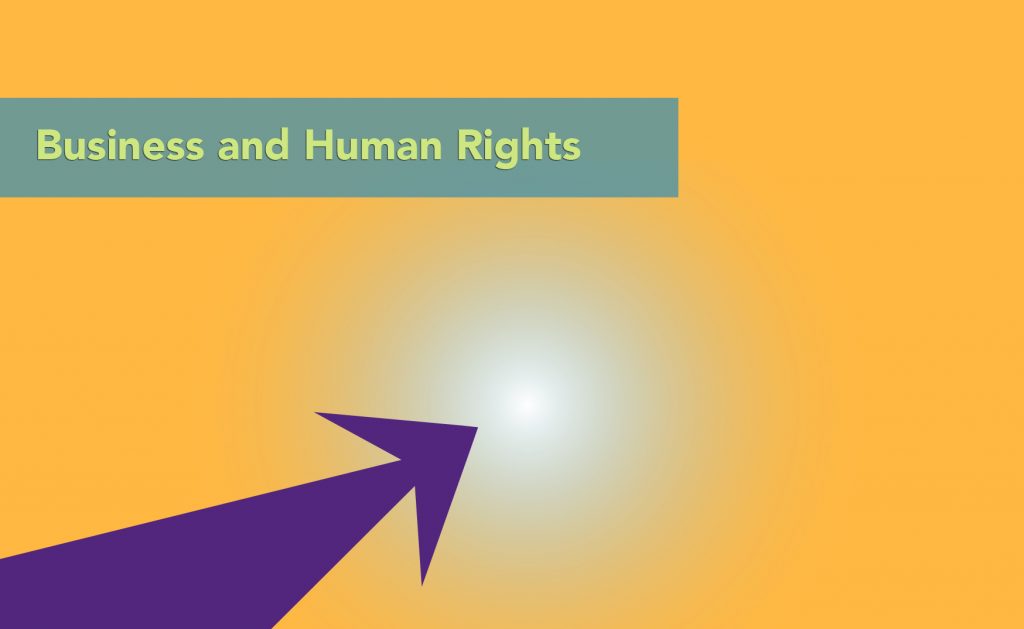Creating Accountability for Human Rights Abuses

ICAR engages policy makers, civil society organizations (CSOs), investors, and corporations to work towards social change through the creation and promotion of legal frameworks for accountability. Based in Washington D.C., they work incrementally and sometimes even invisibly behind the scenes. While often not interacting directly with a marginalized population on the grassroots level, ICAR works ton reform systems and structures that allow for human rights abuses to take place. However, despite recognizing that the change for which they dedicate their careers may not come overnight, or even within their professional lifetimes, the organization’s realistic yet optimistic spirit sustains momentum and pushes research and discourse around the relationship between business and human rights forward. Ensuring the realization of rights in the context of the global economy is an ongoing battle to which ICAR’s goal is to contribute as much as they can.
From ICAR’s perspective, the first step to ensuring the realization of rights around the world is to secure effective legal frameworks and to ensure governments and corporations comply with the requirements laid out by such legislation. ICAR pressures governments to make stronger commitments against corporate interests by adopting more protective and respectful global governance structures and domestic legislation. At the heart of this advocacy is extensive research on a range of legal and policy issues. The organization works on projects ranging from addressing corporate supply chain issues to researching implementation of policies providing an effective remedy process for victims of human rights abuses. It focuses on topics ranging from the automation of jobs to the corporate capture of U.S. Congress to transparency within government purchasing practices. ICAR also works to promote trade and investment as a tool to support sustainable economic growth and the realization of human rights, researching trade tools such as sanctions and import control that can help promote human rights. This includes seeking to influence bilateral trade agreements by removing Investor-State Dispute Settlement (ISDS) mechanisms and excluding them from future agreements.
ICAR’s approach is both global and local. It advocates for domestic policy in Washington D.C. and collaborates with organizations abroad to push for increased human rights protections at the international level. For example, throughout 2017, ICAR has engaged extensively with the G-20 under the Germany Presidency.
Much of ICAR’s policy advocacy work entails working with national governments to advance their human rights agenda, as shown through their work with the National Action Plans (NAPs). National governments have begun to show their commitment to the United Nations Guiding Principles on Business and Human Rights (UNGPs) by developing NAPs to meet their commitments under international law an advance responsible business practices. To assist governments in this endeavor, ICAR has developed a ‘NAPs Toolkit’ with a baseline assessment template and NAPs guide. This toolkit was developed following global consultations with a range of actors including civil society, business, national human rights institutions, and governments.
ICAR also engages with companies to achieve human rights outcomes through working with multi-stakeholder initiatives (MSIs), such as the Fair Labor Association and the International Code of Conduct Association, and initiatives such as their Apparel and Footwear Supply Chain Transparency Pledge. In partnership with a number of organizations, ICAR launched the transparency pledge, which calls for companies to publish important information about supplier factories and their authorized subcontractors. 17 of the 72 contacted companies will be in full alignment with the pledge standards by December 2017, and another five fall just short of the pledge, with an additional 18 moving in the right direction by disclosing at least the names and address of factories. These efforts to secure corporate participation and interact directly with businesses are part of ICAR’s strategy to reduce obstacles to abusive labor practices in global supply chains and create an environment that encourages responsible business practices.
Additionally, ICAR engages with other civil society organizations on joint projects, such as its effort with Amnesty International to close the prosecution gap for corporate crimes, as well as with OECD Watch and Accountability Council to make recommendations on how to strengthen the OECD NCP Peer Review Process. These projects employ a range of methodologies, from desk-based research to consultations and interviews with NCPs, civil society, labor groups, business, policy-makers, national contact points (NCPs), and others to inform concrete recommendations. ICAR’s utilization of networks and coalitions to amplify its messages not only widens engagement with priority issues but also increases pressure on government and corporate actors to adopt new policies or reform existing requirements.
Working on legal and policy work requires unique skills and targets those holding the reins of power to affect change. For example, a critical component of ICAR’s procurement reform strategy is congressional outreach. ICAR advocates for transparency across government supply chains and the disclosure of information by using the procurement process to leverage the purchasing power of the U.S. Government.
ICAR’s multi-faceted approach is critical to the complex and ever-evolving discourse within business and human rights. The business and human rights community, as a whole, has made considerable progress towards corporate accountability, using pressure from different directions to amplify the demand for justice for human rights abuses and the realization of rights around the world as well as ensure businesses prevent, mitigate, and remedy negative impacts on human rights. However, as ICAR noted, such efforts hinge on addressing broader social and economic inequality, and its strategy therefore centers on removing these barriers to a more just and equal society. Researching, advocating and campaigning for a rights-based economy drives ICAR’s work forward as well as spurs the realization of rights for communities around the world.
